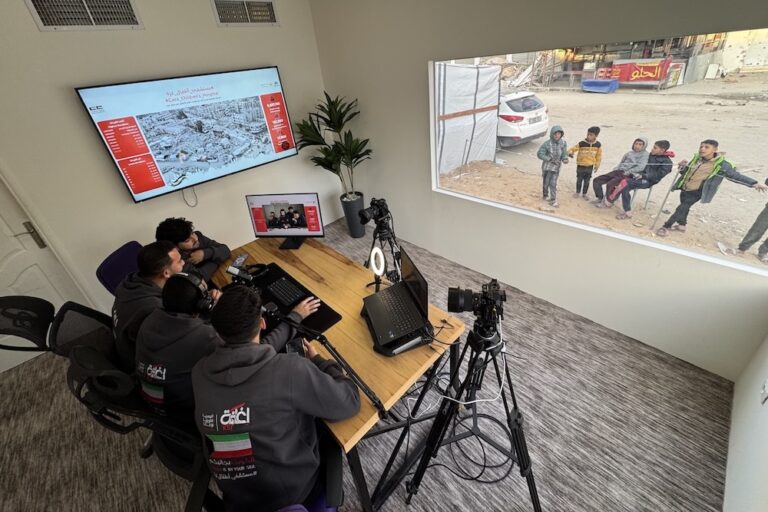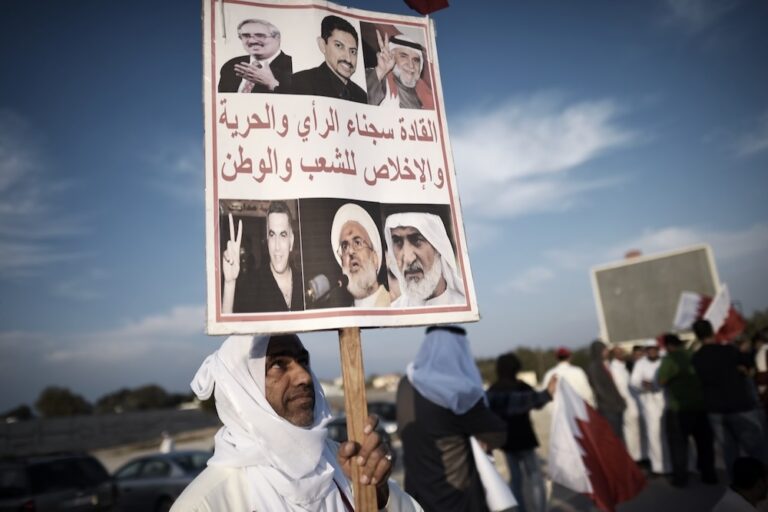(WiPC/IFEX) – The following is a 16 December 2003 WiPC press release: 16 December 2003 Anti-Terrorism, Writers and Freedom of Expression A PEN report In recent decades, International PEN’s Writers in Prison Committee has recognised a worrying pattern in how governments often use local anti-terrorism laws, and/or national security laws, as a mechanism for silencing […]
(WiPC/IFEX) – The following is a 16 December 2003 WiPC press release:
16 December 2003
Anti-Terrorism, Writers and Freedom of Expression
A PEN report
In recent decades, International PEN’s Writers in Prison Committee has recognised a worrying pattern in how governments often use local anti-terrorism laws, and/or national security laws, as a mechanism for silencing dissent. However, the terrorist attacks in the United States of America on September 11, 2001, unleashed a new global climate that lawyers, international experts, writers and intellectuals everywhere are still grappling to understand. Many things emerged at once: greater fear among citizens, especially in the West, of terrorist attacks, especially at the hands of those deemed to be ‘Islamic Fundamentalists’; a rush by various governments to grant their intelligence agencies and their police new powers aimed at identifying and apprehending terrorists; two major invasions of Afghanistan and Iraq by a coalition of forces led by the United States; a continuing ‘war on terrorism’ in which the next stages are unclear. This Pandora’s Box of actions and reactions has rendered calm reflection difficult, and yet arguably organised analysis and deliberation of recent events is essential if the dangers of this particular chapter of history are to be safely negotiated.
The question of how freedom of expression has fared in this climate is, as PEN views it, pressing. Is freedom of expression another victim of the catastrophic events of September 11, 2001, or does it nevertheless survive and thrive? If and where freedom of expression has been eroded, what consequences does that erosion entail? If there is indeed more danger than ever to ‘life, liberty and security of person’ in the post- September 11, 2001 (or, to use that by-now familiar term, the post- ‘9/11’) world, what, if anything, can writers do about it? Must freedom of expression as a right be held in abeyance in the name of tracking down and apprehending terrorists? Or should it be protected as a force for bringing about greater understanding between nations, as PEN first believed it could be in the early days of PEN’s formation?
This report is PEN’s first step in trying to answer these timely questions. It is designed as a preliminary discussion document for PEN members and other human rights groups, journalists, writers, and government officials. It is also hoped that the report will lead to further reflection and campaigning action.
Anti-terrorism, writers and freedom of expression comprises a 35-country overview of places where anti-terrorism measures, especially since 9/11, have had an impact on freedom of expression. The themes that emerge in this overview are debated more generally in accompanying the chapter, ‘TERRORISM AND FREE EXPRESSION: THEMES AND ISSUES’. Then, in ‘WRITERS REACT’, the report summarises the results of a preliminary questionnaire sent out to various PEN Centres and analyses the kinds of comments on 9/11 expressed in published articles by writers active in PEN. Finally, in ‘CONCLUSIONS’, the main threads that emerge are presented along with suggested future directions for analysis and campaigns.
Copies of the report are available in English, French, Spanish and Catalan and can be downloaded from PEN’s web-site, http://www.internationalpen.org.uk, click on “Writers in Prison Committee”, or order a hard copy through the London office.


